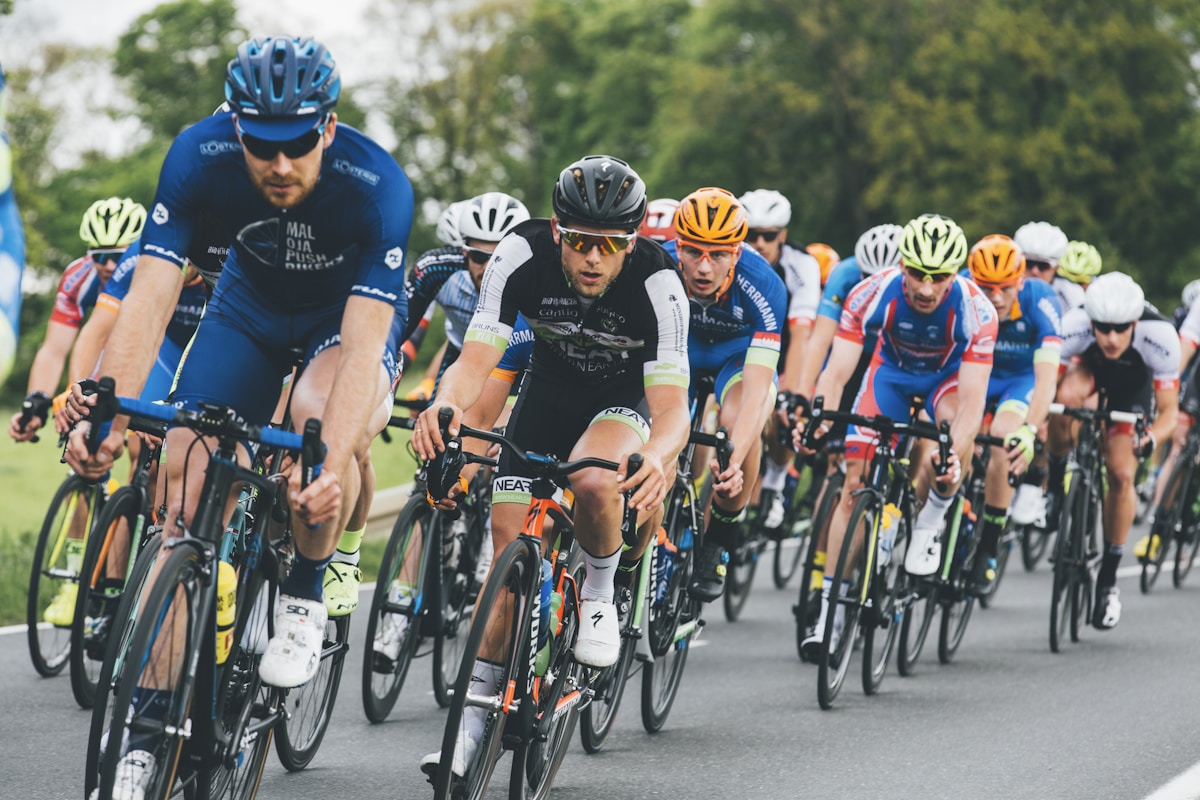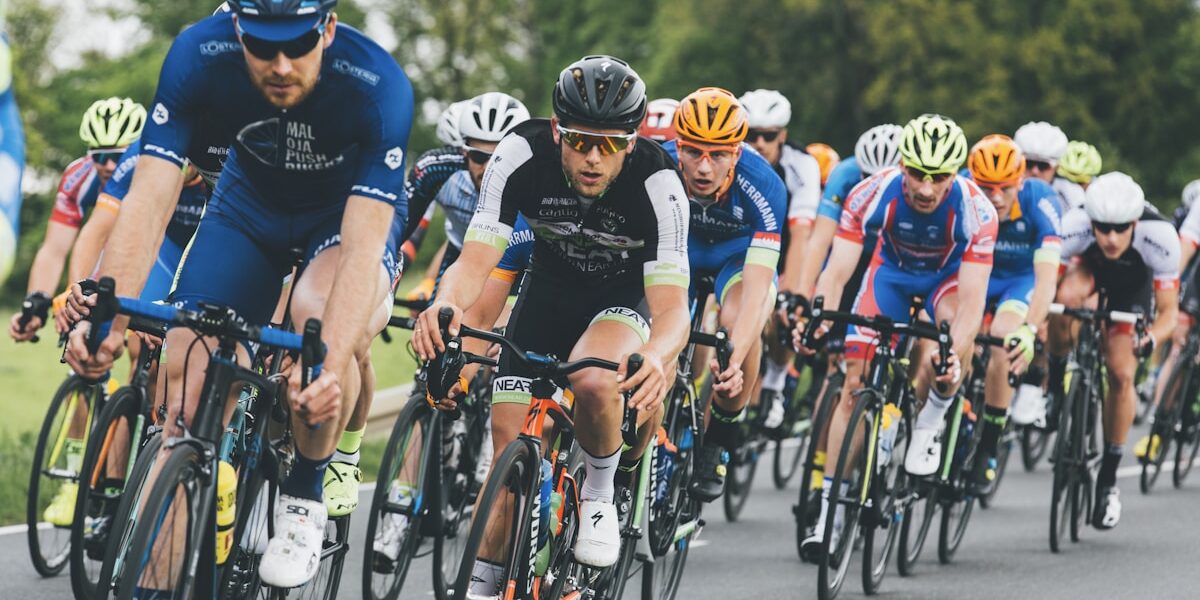Cycling has gotten complicated with all the gear and training methods flying around. As someone with extensive cycling experience, I learned everything there is to know about this topic. Today, I will share it all with you.
Gran Fondo: An In-Depth Look
Gran Fondo: An In-Depth Look
Gran Fondo, an Italian term meaning Big Ride, refers to long-distance road cycling events. These events originated in Italy during the 1970s and have since gained worldwide popularity. Participants range from professional cyclists to recreational enthusiasts, making Gran Fondos accessible to a wide array of fitness levels and cycling expertise.

The Structure of a Gran Fondo
Gran Fondos often vary in length, typically spanning from 75 to 150 kilometers. The routes are meticulously planned, showcasing a mix of terrain, from flat roads to challenging mountain climbs. Riders face timed sections, known as segments, which test their speed and endurance. Usually, these segments include uphill climbs and sprint sections, where participants aim for their personal bests.
Categorization and Timing
Riders in a Gran Fondo are often grouped into categories based on age, gender, and sometimes skill level. This categorization ensures a fair competition and tailors the experience to varying degrees of proficiency. Electronic timing chips attached to cyclists’ bikes help in recording their times accurately, allowing for real-time tracking of their progress.
Preparation and Training
Participating in a Gran Fondo requires considerable preparation. While some may join for the sheer experience, many take the event as a serious athletic endeavor, necessitating comprehensive training programs. Cyclists typically focus on building cardiovascular endurance, muscle strength, and flexibility.
Training Regimens
Training usually begins months in advance. Intermediate and advanced riders might incorporate interval training, hill repeats, and long weekend rides into their schedules. Endurance is built gradually by increasing the distance cycled each week. Recovery periods are crucial to prevent overtraining injuries.
Diet and Nutrition
Diet plays a crucial role in preparation. Riders often follow a balanced diet rich in carbohydrates, proteins, and fats. Carbohydrate loading, common before the event, helps in storing glycogen levels, which are essential for sustained energy. Hydration is equally critical, with riders ensuring sufficient fluid intake to stave off dehydration during training and on the event day itself.
Equipment and Gear
The right gear can significantly impact the Gran Fondo experience. Choice of bike, clothing, and accessories needs careful consideration.
Bikes
Road bikes, designed for speed and efficiency, are the preferred choice. Lightweight frames, often made of carbon fiber or aluminum, help in managing terrain variety effectively. Cyclists may also customize their bikes’ gearing systems to suit the specific requirements of the event route.
Clothing
Comfort is essential, given the long hours on the saddle. Bib shorts with a padded chamois, moisture-wicking jerseys, and gloves are standard attire. Layers that can be easily added or removed help adapt to weather changes during the ride.
Accessories
Helmets are mandatory for safety. Sunglasses with UV protection shield eyes from sunlight and debris. Bike computers or GPS devices help in navigation and tracking performance. Hydration systems, such as water bottles or hydration packs, ensure riders can maintain fluid intake without frequent stops.
Event Day Essentials
On the day of the Gran Fondo, riders should arrive early for registration and final bike checks. It’s essential to carry spare tubes, a pump or CO2 cartridges, and a basic repair kit. These tools can be lifesavers in case of a flat tire or minor mechanical issues during the ride.
Nutrition on the Road
Riders often carry energy gels, bars, and snacks to refuel. Aid stations positioned along the route provide water, electrolytes, and food. Proper pacing and nutrition strategies help in avoiding the infamous bonk, where one’s energy reserves deplete abruptly.
Mental Preparation
Mental preparedness is as crucial as physical training. Visualization techniques, such as imagining the route and positive outcomes, can enhance focus and resilience. Mental fortitude helps in pushing through the tougher segments of the event.
The Community and Social Aspect
Gran Fondos foster a sense of community among cyclists. These events are more than just races; they are social gatherings celebrating the love of cycling. Participants often share stories, strategies, and camaraderie, creating lasting bonds within the cycling community.
Inclusivity and Participation
Inclusivity is a hallmark of Gran Fondos. While competitive cyclists can chase personal records, others can indulge in the scenic joyrides and the collective enthusiasm that permeates the event. There are often shorter courses available, accommodating new riders or those not ready for the full distance.
Supporting Local Economies
Gran Fondos often benefit local businesses and tourism. These events attract thousands of cyclists and spectators who contribute to the local economy by patronizing hotels, restaurants, and shops. Event organizers sometimes also partner with local vendors and artisans, creating a festive atmosphere that includes markets, music, and other local delights.
Environmental Considerations
Attention to environmental impact is becoming integral to Gran Fondo planning. Organizers implement measures to minimize waste and promote sustainable practices, such as eliminating single-use plastics and ensuring proper disposal of waste along the route. Educating participants on eco-friendly practices, such as using reusable bottles and minimizing littering, is also a key focus.
Global Appeal and Variations
The Gran Fondo phenomenon has spread beyond Italy, with events held globally, adapting to local landscapes and cultures.
Notable Events Worldwide
- Gran Fondo New York: Known for its challenging route through the New York City area, attracting international participants.
- L’Étape du Tour: Allows amateur cyclists to ride a stage of the Tour de France, testing their mettle on a professional route.
- Gran Fondo World Tour: A global series that crowns champions based on cumulative performance across various events worldwide.
Unique Variations
Some Gran Fondos incorporate unique regional elements. For instance, the Gravel Fondo includes sections of unpaved roads, appealing to those seeking rugged adventure. Meanwhile, culinary-themed Gran Fondos integrate food stops featuring local delicacies, blending physical challenge with gastronomic pleasure.
Personal Achievements and Goals
For many, completing a Gran Fondo is a personal milestone. It’s an opportunity to test limits, overcome challenges, and achieve goals that extend beyond cycling. The sense of accomplishment upon crossing the finish line is profound, often inspiring continued participation in future events.
Health Benefits
Participating in Gran Fondos offers significant health benefits. Regular cycling improves cardiovascular health, muscle tone, and overall fitness. Endurance events boost mental health by fostering a sense of achievement and reducing stress. The social interaction and camaraderie also enhance emotional well-being.
Challenges and How to Overcome Them
While Gran Fondos are rewarding, they come with challenges. Weather conditions can impact performance. Riders should prepare for variable weather by equipping their bikes with appropriate tires and attire and carrying layers to adapt to changing conditions. Mechanical issues are another common hurdle. Basic bike maintenance skills and carrying essential repair tools can mitigate these risks.
Inclusivity for Different Age Groups
Gran Fondos are inclusive of different age groups. Youth categories encourage young cyclists to participate, fostering a love for the sport early on. Older cyclists find Gran Fondos an excellent way to stay active and competitive, often forming age-group clusters for better camaraderie and support.
Gran Fondos continue to grow in popularity, embodying the spirit of endurance, community, and the joy of cycling. They offer a rewarding challenge for participants of all levels, making them a cornerstone event in the world of cycling.
Recommended Cycling Gear
Garmin Edge 1040 GPS Bike Computer – $549.00
Premium GPS with advanced navigation.
Park Tool Bicycle Repair Stand – $259.95
Professional-grade home mechanic stand.
As an Amazon Associate, we earn from qualifying purchases.



